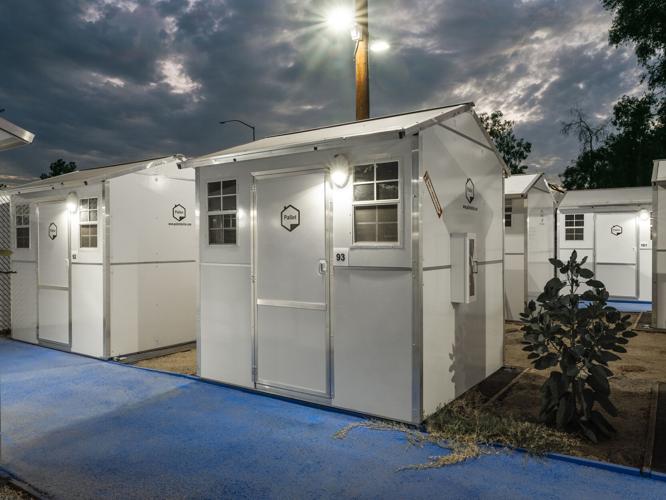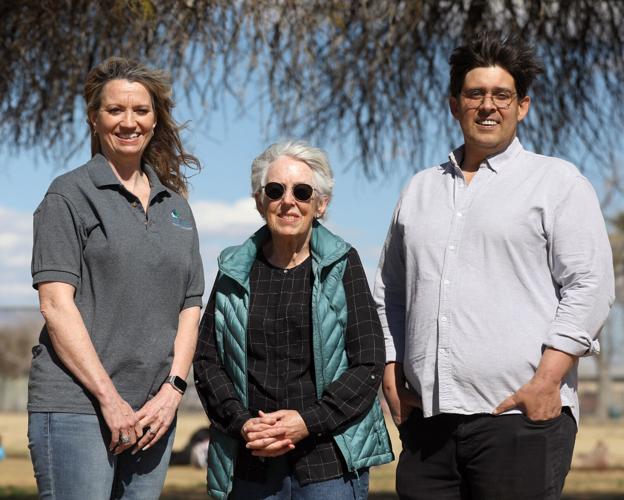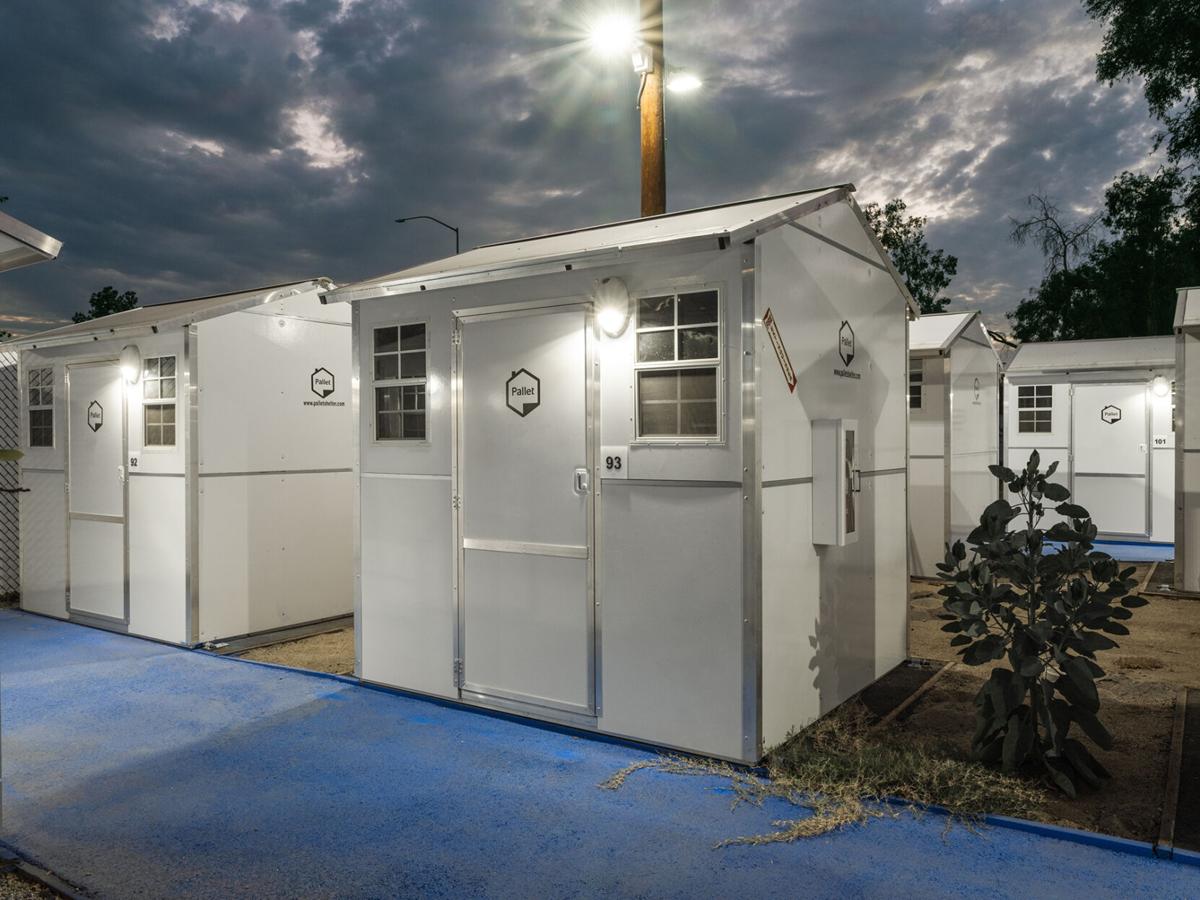A local nonprofit working to build a tiny house village for unsheltered people has received a sizable land donation and is now working to secure funding.
The Homing Project was started in 2021 by former El Rio doctor J. Kristin Olson-Garewal and her son, Raj Garewal, who has experience working with similar projects in Southern California. They teamed up with Catalytic Health Partners to provide wraparound services for residents and in March, told the Star about their difficulties securing land amidst the current real estate market.
Less than a week later, the group received an offer to use nine acres of land free of charge for the next five years, Olson-Garewal told the Star.

"We're working with community leaders to find out (neighbors') concerns," Olson-Garewal said.
In January, The Homing Project submitted a proposal to the city of Tucson to create a 14-unit Pallet house village with one of the city's American Rescue Plan Act grants. The proposal was based on the Pallet shelter model that's used in more than 50 cities across the United States. The ultimate hope is for a 30-house village, but the city's criteria included only proposals for transition housing for youth and elders.
Pallet houses come in 64- and 100-square-foot models and can be assembled quickly. The 64-square-foot model houses two beds, a desk and room for storage. The larger unit can accommodate a family of four, and in all pallet houses, the beds fold up to help maximize space. Each unit includes electricity, heating and air conditioning, and has secure, locking doors.
The Homing project will offer on-site social services, food, restrooms, showers and laundry, with residents taking turns preparing meals for the community. Olson-Garewal also hopes to install a basketball court to give residents something to do in their down time.
"Hopefully they'll be busy enough that it will be a normal home and they'll want to stay there," she said.
People with established partners, families and pets will all be allowed into the facility, and residents will come from the area in which the village is located, Olson-Garewal said. The group has one location locked in, but is hoping to expand in the future to other parts of town.
"If someone wants their homeless out of the way, they're going to have to give us a place to put up houses," she said.

From left, Susan Cordts, J. Kristin Olson-Garewal, and Raj Garewal are the founding members of The Homing Project, a new local nonprofit that wants to build a village of 30 Pallet houses to help unhoused people. Pallet houses are as small as 64 square feet, easy to assemble and cost-efficient.
The Homing Project is finalizing contracts for its $186,000 in ARPA funding. The group plans on residents staying at least two years, and they'll begin paying an appropriate rent at the point that they become financially stable, Olson-Garewal said.
The city is awarding multiple ARPA grants upwards of $2.5 million to assist with housing efforts, which Tucson Mayor Regina Romero says is a priority for this administration.
"(We have to be) able to offer people not just temporary shelter, but connect them to long term solutions for the reasons that they are houseless," Romero said. "What I want to make sure that we are doing as a city is that we are providing housing first, and then wrapping around the services that our houseless residents deserve. Safe, wraparound services and longterm stability."
Romero said the city's partnerships with local nonprofits like The Homing Project will make these efforts more stable in the longterm, and that it takes such partnerships to have a clear vision for the future of housing and community development in Tucson.
"We have never seen such big focus and big investment by the city of Tucson in our housing strategy," Romero said, adding that the city didn't have a longterm strategy for housing until she and and city council asked for one. "For me, as a mayor of our beautiful city, it has been a priority of mine to have stable, safe housing at every level of where an individual needs it."
Romero called the distribution of American Rescue Plan dollars historic, saying that the city has been putting the funds it's received to good use.
"What we have been able to do these past two years, we’ve never seen it done before," she said.







